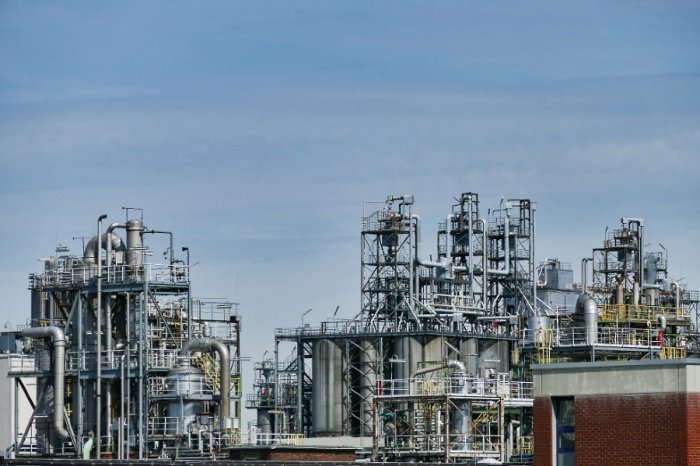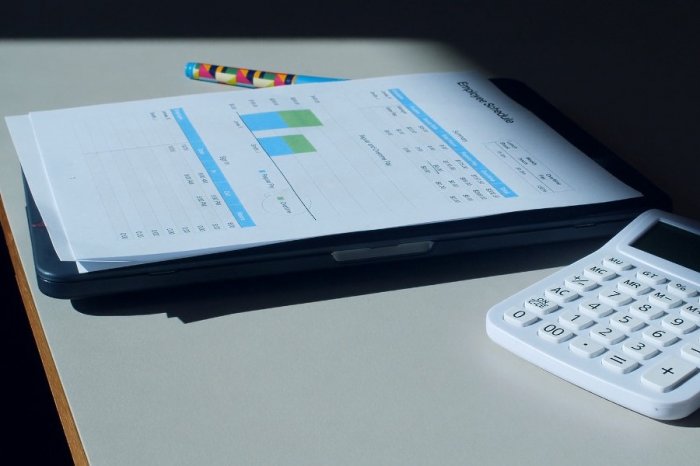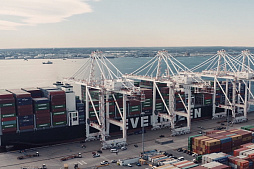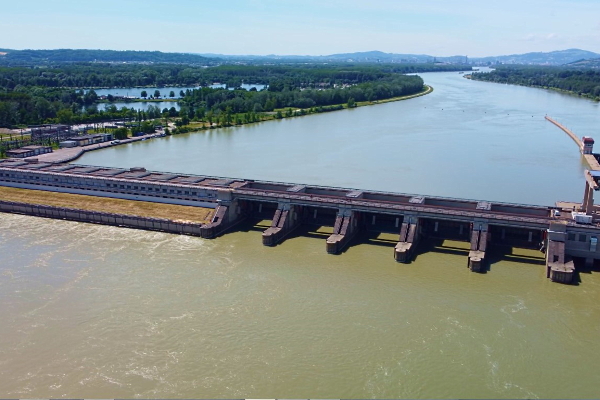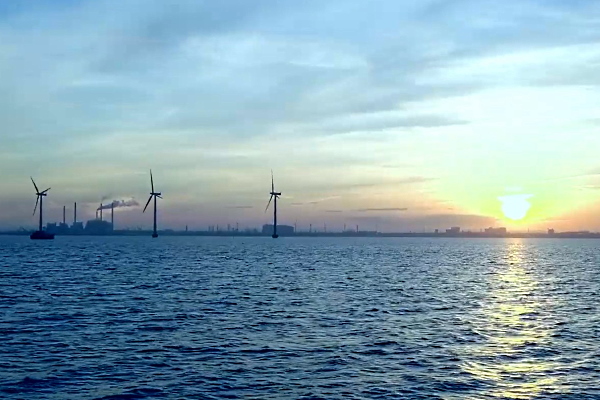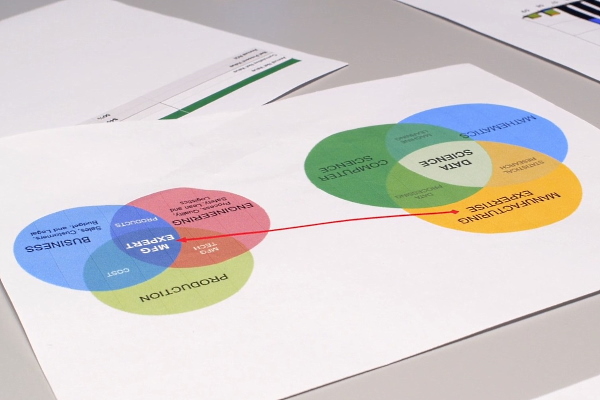To consider an application for financing, fill out the form and send it to us by e-mail along with the project brief, or contact our experts
This can be explained by the long life cycle of real investment projects and the uncertainty of future results, as demonstrated by quarantine restrictions in the global tourism industry.
The implementation of a large investment project involves the participation of many stakeholders.
The mistake of one of the participants can pose a threat to the project as a whole.
Particularly close attention is required to the choice of the method and schemes of financing, among which the most relevant is the project finance of the hotel business.
When issuing long-term loans, banks pay attention not only to liquid collateral and good financial health of the borrower, but also conduct a comprehensive analysis of the financed project, often refusing to issue a loan.
Not surprisingly, the term “project finance” has become increasingly popular in the lexicon of bankers, investors and hoteliers lately.
The gradual recovery of traditional tourist destinations and the growth in demand for the hotel sector will require companies to take new approaches to financing the construction of hotels, modernizing and / or expanding existing hotel complexes and their infrastructure.
Project finance (PF) in the hotel business continues to play an increasingly important role, allowing entrepreneurs to finance new investment projects against future cash flows.
Fundamentals of project finance in the hotel business
Tougher competition between credit institutions and the emergence of fundamentally new opportunities in the context of the development of the financial market encourage banks to look for new ways to increase the profitability.One of the ways to solve this problem was the development of new forms of investment activity and the growth of the list of services provided by banks.
Against this background, the participation of banks in project finance has increased dramatically, with banks involved in the development of investment projects, provide clients with professional advice, bear the costs of the project, and even become owners of shares in the hotels being created. Thus, project finance is mentioned as a promising new activity of credit institutions involved in the organization of financing of hotel investment projects.
Project finance in the hotel industry refers to a specific form of financing that is based on the viability of the project itself, without regard to the solvency or guarantees of its main participants.
In fact, PF is a more complex form of credit relations regarding the organization of an investment project using various financial instruments.
Its most important feature is the repayment of debt using the cash flows generated by the project, as well as the use of project assets (hotel complex) as collateral.
The world financial practice has accumulated a rich experience in the use of PF instruments in such sectors as infrastructure, communications, waste processing, and others. Project finance is widely used in the construction or expansion of large industrial facilities (for example, gas production).
The PF makes it possible to simplify the implementation of multilateral projects in which the balance of interests of all participants is observed and various financial instruments are used:
• Lending.
• Leasing instruments.
• Investments in equity capital.
• Alternative financial mechanisms.
The hotel complex and its infrastructure, which is characterized by high capital intensity, moderate commercial efficiency and exceptional sensitivity to external conditions, should be at the center of project finance schemes.
The specifics of the organization of project finance in the hotel industry differ significantly from other sectors. The complexity of financing such projects is caused by a long implementation period, close connection with the tourism sector, and the involvement of a wide range of financial or legal services from various entities involved in the preparation and implementation of the project.
Skywalk Investment Group offers professional services in the field of financing hotel projects.
Along with long-term loans for large companies, our team is ready to offer you the organization of project finance schemes, guarantees, financial modeling, project management, investment consulting, investment engineering and other services.
Principles of project finance
World practice defines several fundamental principles of project finance that are applicable to the hotel business. Below we present each of these principles and their role in organizing the financing of hotel projects.The principle of increased risk
Any investment project financed against future cash flows is based on a rational distribution of risks among the maximum number of participants.Project risks require preliminary analysis and careful monitoring in order to conclude contracts on adequate terms and repay debt within a specified period. In practice, adherence to this principle means an increase in the cost of financing for the entire debt service period.
The principle of adequate debt coverage
Compliance with this principle by the capital provider is based on the debt coverage ratio, which is determined by the ratio of the expected proceeds of the project to the total debt.The results obtained are compared with the basic version of the investment project prepared by experts. Debt-service coverage ratio (DSCR) for project finance schemes in the hotel business, as a rule, should be in the range of 1.4-1.7, depending on the degree of risk of the project.
The principle of market viability
The market principle requires a credit institution to conduct a detailed analysis of market conditions when concluding a loan agreement. Such an analysis, among other things, is carried out in order to determine the dynamics of prices and demand for the period of operation of the hotel.The principle of limited liability of the initiator
This principle is typical for project finance.According to it, debt repayment comes from the cash flows of the project, and the financial responsibility of the project initiator is limited to his own contribution. In general, a hotel project is considered ready if the real occupancy rate of a hotel, income from rooms and other key indicators reach the planned values in accordance with mutual obligations.
The principle of guaranteeing investments
A guarantee in project finance means an unconditional obligation to transfer specified funds to a capital provider (usually a bank) after a guarantee event occurs.The purpose of such guarantees is reliable insurance of debt obligations of a hotel project for the entire period of its life cycle.

Debt repayment principle
This principle means that the project finance will require an unconditional return of funds in accordance with the schedule.Since the debt repayment schedule is built taking into account the life cycle of the investment project, the principal payments begin after a certain occupancy rate is reached, and the project debt repayment rate should be proportional to the project's cash flows.
Principle of high financial leverage
This PF principle is based on maintaining a high ratio between equity and borrowed funds, which varies depending on the market niche / project (for example, 20:80; 30:70 or 40:60). In most cases, potential lenders expect a contribution from the initiator of the hotel construction at the level of 20-30% of the total cost of the project, rarely more.Skywalk Investment Group offers financing for projects in the hotel sector with the contribution of the initiator up to 10%.
If you are interested in cooperation, please contact the company representative.
Types of project finance in the hotel business
The attraction of financial resources for the implementation of hotel projects is carried out in accordance with the regulatory framework in force at the time of signing the agreement.The procedure for financing hotel projects depends on the sources of funds, the type of project, the role of credit institutions in financing, the degree of risk of the lender and other factors.
Project finance in the hotel business can be carried out using the following fund sources:
• Equity: funds of shareholders, new owners of the company, share contributions, etc.
• Borrowed funds, including those obtained through loans and the issuance of bonds.
• Other internal and external funding sources.
If a hotel project is implemented using the internal financial resources of the initiators, depreciation and retained earnings play an important role. This type of PF is called “corporate project finance”.
This type of financing is used quite rarely, since few companies are actually able to finance large capital-intensive projects from internal resources.
For this reason, various sources of debt financing are used to obtain the necessary funds, which include the following:
• Loans from banks and other financial institutions.
• Loans from equipment suppliers and contractors.
• Financial leasing instruments.
• Promissory notes.
• Bond financing.
If bank loans become the predominant source of funds in the process of implementing a hotel project, this is the so-called bank project finance (essentially, investment lending).
Large loans can be secured by real estate, equipment, shares, and also by guarantees.
One of the key sources of project financing are loans secured by real estate, which exist in various forms.
An important credit mechanism in the hotel industry is bond financing. It is used for long-term investment projects, in particular in the course of financing transactions related to M&A (hotel chains). A bond loan allows companies to flexibly and quickly manage debt.
A separate type of project finance is long-term financing based on the use of financial leasing.
The advantage of this mechanism compared to lending is the attraction of investments with less risk for the investor, since the company retains ownership of the leased object and, thus, assumes part of the risks. Leasing schemes in some situations can be considered as a way to secure the loan agreement.
Project finance in the hotel business is often associated with the issue / placement of shares and other securities.
Such a mechanism involves the participation of the investor in the management of investment projects when purchasing a controlling stake. Equity capital can be created through cash contributions from owners, as well as through the transfer of real estate, land, movable property and other resources to the company.
The benefits of this type of financing include the following:
• A significant amount of resources can be attracted at the beginning of the project, which allows the initiators to postpone the payment of the main part of the debt.
• Financing the construction of large hotels that require significant investment can combine several financial instruments with maximum efficiency.
Depending on the method of accounting, financial experts distinguish between off-balance sheet and balance sheet financing. When using off-balance sheet project finance, the entire financial debt of the borrower is displayed in the balance sheet of the project company (SPV) and thus does not affect the solvency. Off-balance sheet financing is only possible if host country law allows the project company's balance sheet to be excluded from the investor's consolidated balance sheet.
Financing with limited recourse to the borrower
According to the degree of risk of the lender, project financing can be conditionally divided into financing without recourse, with partial recourse or with full recourse to the borrower.It depends mainly on the ability of the lender to make financial demands on the borrower.
Obviously, the most expensive scheme for the borrower is financing without recourse, which does not provide for the creditor's right to financial claims against the borrower. Under these conditions, the lender assumes all the commercial, legal, technical and political risks associated with the implementation of the hotel project, providing a loan at much higher interest rates.
Since PF schemes for the construction of hotels and tourism infrastructure are associated with a high risk for lenders, there is a clear preference to projects with the following parameters:
• The use of well-established technology and a business model that allows participants to ensure that the hotel's targets are met in a certain period.
• Sufficient access to information to assess the risk of construction, the achievement of planned indicators and the risks associated with the operation of the facility.
• A complete list of permits, licenses, contracts, guarantees and other documents that increase the chance of successful project implementation.
• Political and economic stability in the region where the construction is carried out.
Lenders often have to provide incentives to partners, participate in share capital, enter into long-term deals, introduce flexible repayment schedules, and perform other risky activities.
Financing a hotel project without recourse to the borrower is rarely used due to the complexity of creating a system of commercial obligations, the enormous costs of attracting specialists, providing investment consulting services, etc.
Project finance schemes with partial recourse to the borrower are based on a deep assessment of all risks associated with the implementation of the project.
These risks are distributed among the parties to the agreement so that the latter can competently manage them.
The cost of this type of financing is lower, which has contributed to its spread in practice. Rational distribution of risks between the project participants spurs their interest in the project. The parties accept specific commercial obligations instead of providing guarantees.

Partial recourse financing provides the borrower with the following benefits:
• Opening access to financial resources that cannot be obtained from alternative sources of financing; improving the business reputation and credit history of the borrower.
• Obtaining additional loans with a clear distribution of project and credit risks and a rational contractual structure of the project.
• Extension of the debt payment period.
Financial institutions are interested in project finance through the implementation of partial or non-recourse financing schemes.
Project finance with full recourse to the borrower may be chosen due to quick and easy access to finance, as well as low cost of capital compared to other PF schemes.
Organization of project finance schemes in the hotel business
The project finance system consists of three consecutive stages:1. Search and justification of sources and instruments of financing.
2. Determination of the financing structure of the future hotel project.
3. Regulation of interaction between project participants.
Attracting resources for the implementation of large hotel projects from various sources / under different conditions is determined by the local regulatory framework in the field of project finance.
Important elements of the PF are financial plans and schemes for financing investment projects. The financial plan is a document that reflects the receipt and expenditure of the company's funds for the short and long term.
The financial planning process should include the following steps:
• Analysis of financial performance for the previous period based on the balance sheet, income statement and cash flow statement.
• Short-term and long-term financial planning under the supervision of experts.
• Practical implementation of plans and control over their execution.
A significant element of this process is budgeting, which consists of a system of budget planning for structural units and a system of budget planning for the company as a whole.
The search for an effective project financing scheme requires comparing the effectiveness of using those forms and methods of its implementation that are available on the investment / credit market.
Investment project financing schemes can be grouped into two groups.
Firstly, a hotel project can be implemented as a whole, using the company's internal resources and external funds.
Secondly, the project can be divided into several sub-projects with phased implementation, the financial support of which is based on direct or indirect lending.
The use of the first scheme is usually associated with the implementation of small projects, as well as projects that cannot be divided into subprojects. The second method of financing is used for more complex projects, the implementation of which stretches for a period exceeding the standard terms for lending to similar projects by participants in the investment / credit market.
The advantage of the latter approach lies in the involvement in the financing and implementation of individual subprojects of various entities that may show interest in specific facilities.
This may apply to large tourist complexes, consisting of several hotels of various types and formats.
Staged financing of large hotel projects allows companies to use the assets created during the previous stage as collateral for the return of borrowed funds in subsequent stages. Depreciation allowances from the first projects can be used to finance subsequent stages.
Credit support in this case is provided for a shorter period and on more flexible terms than a long-term loan for the implementation of a large-scale project as a whole. This scheme provides a number of tax benefits, ensures the most efficient use of credit instruments at each stage, and contributes to the increase in the value of the shares of project participants as a result of the completion of each subproject and the commissioning of new hotels.
Key considerations when choosing a financing scheme for a hotel project:
• Minimization of the cost of borrowed funds.
• Achieving the greatest effect from loans and tax incentives.
• Optimization of income, taking into account the conditions of taxation.
• Minimization of negative consequences from mutual obligations associated with payments or transfer of property under project agreements.
• Reduction of project costs and risks through the development of the correct contract structure and rational choice of funding sources.
If you are looking for long-term hotel financing or investment advisory services, please contact an Skywalk Investment Group representative at any time.
Our team has extensive experience in financing large projects in Europe, Latin America, North Africa, the Middle East and several other regions. Our financial technologies, knowledge and business contacts will help your business to attract financial resources on the most favorable terms.
Making a decision on financing a hotel project
Raising funds for any project begins with a comprehensive assessment of investment opportunities, constraints and risks, based on which the capital provider makes an appropriate decision.Understanding this process is critical for companies looking to raise finance.
Making a funding decision consists of two interrelated elements that make up the overall project appraisal and financial analysis, as outlined below.
Elements for selecting hotel projects for debt financing:
• General evaluation: professional evaluation of the project according to general criteria, including assessment of the financial health of the founders, assessment of the sector and viability of the hotel complex, preparation of a feasibility study.
• Financial analysis: an analysis of the financial side of a hotel project that evaluates indicators such as the cost of the project and the schedule of its financing, the forecast of operating costs and income for the project, economic efficiency.
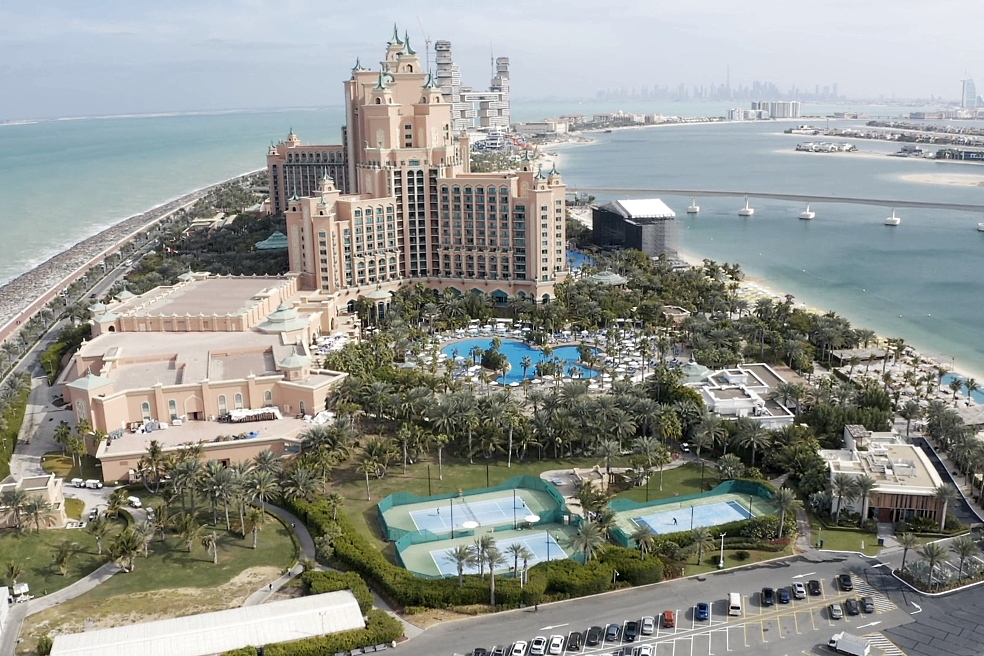
Based on the recommendations and reports received, the capital provider must make a conclusion about the acceptability of the project and the risks associated with its implementation.
The financial decision made at this stage, in contrast to investment decisions, contains a number of practical issues of organizing financing.
Evaluation of a hotel project based on economic criteria begins with an analysis of partners. The financial condition of each of the partners, their experience, position in the market of goods and services, reputation and other criteria are studied. The primary tasks are to determine the interest of partners in the project and the ability to fulfill commercial and financial obligations.
When analyzing the reliability of partners, financial health, experience in running a hotel business, and the amount of available financial resources are studied.
At this stage, the main reporting documents of partners are studied, such as balance sheets, profit and loss statements, reports on changes in financial flows for a certain period.
The analysis of the company's financial position is based on the analysis of cash flows, which allows management to accurately determine the type of activity that brings it the greatest income, as well as to make accurate forecasts for the near future.
Financial analysis of hotel projects is carried out on the basis of reports submitted by independent auditors.
To assess the financial position of a company, the following are taken into account:
• Working capital and total debt.
• Short-term financial liabilities.
• Accounts receivable turnover.
• Operating expenses and average current assets.
• Accounts payable.
• Capital liquidity index.
• Net profit, etc.
At the stage of pre-investment studies, a preliminary project plan is drawn up, which allows you to estimate the duration of the project, the structure and list of contractors, as well as agree on a preliminary estimate and financing schedule.
The result of pre-project research is the development of a feasibility study for a hotel project. The feasibility study is the most important document for construction. Based on the approved feasibility study, tender documentation is prepared and tenders are carried out, project contracts are concluded, construction financing is opened and working documentation is drawn up.
In the process of developing a feasibility study of objects, it is mandatory to assess the impact of the hotel facility on the environment.
The purpose of such an assessment is to prevent environmental degradation, develop measures to reduce the level of environmental hazard of activities, develop an action plan to compensate for the negative consequences of the project in the social sphere.
A general analysis of the feasibility study involves an assessment of the quality of preparation, completeness of information, the correctness of financial calculations, the reasonableness of prices for materials and equipment, licenses, as well as for the construction services provided.
Thus, a high-quality feasibility study makes it possible to correctly assess the viability of the project. In case of a negative result obtained at this stage of the analysis, further development of the project is not carried out. If the project is approved, credit institutions carry out its quantitative analysis, during which the best option for project implementation is selected and the main indicators are calculated.
When evaluating the financial criteria of a hotel project, an analysis of the cost of construction (modernization), the development of a financing schedule and forecasting of operating costs and income for the project are carried out.
The financial assessment is based on information obtained from the consideration of all investment aspects of the project. It embodies an integrated approach and is the basis for making decisions by investors and lenders to participate in the project. The value of these results depends both on the completeness and reliability of the initial information and on the correctness of the methods used.
Thus, the financial evaluation of a hotel project is a complex procedure that largely determines the result of efforts to organize PF schemes.
This requires extensive knowledge and experience, which necessitates the involvement of experts in the field of investment consulting.
Skywalk Investment Group is ready to provide you with investment engineering, financial modeling, project management and investment consulting services from leading European experts.
We offer large loans for the construction and modernization of hotels and tourist facilities, including flexible project finance schemes in hotel industry and related sectors.





